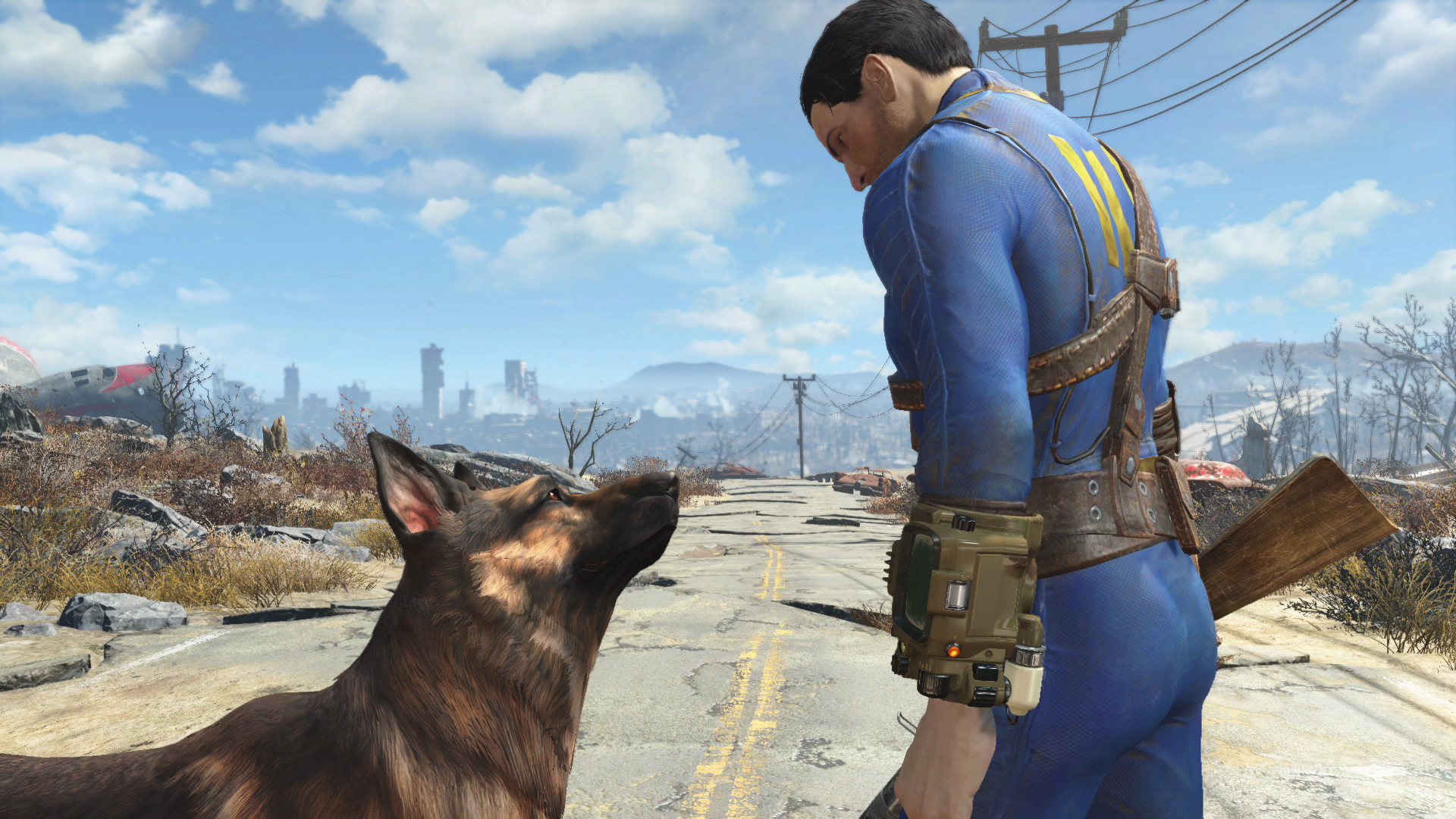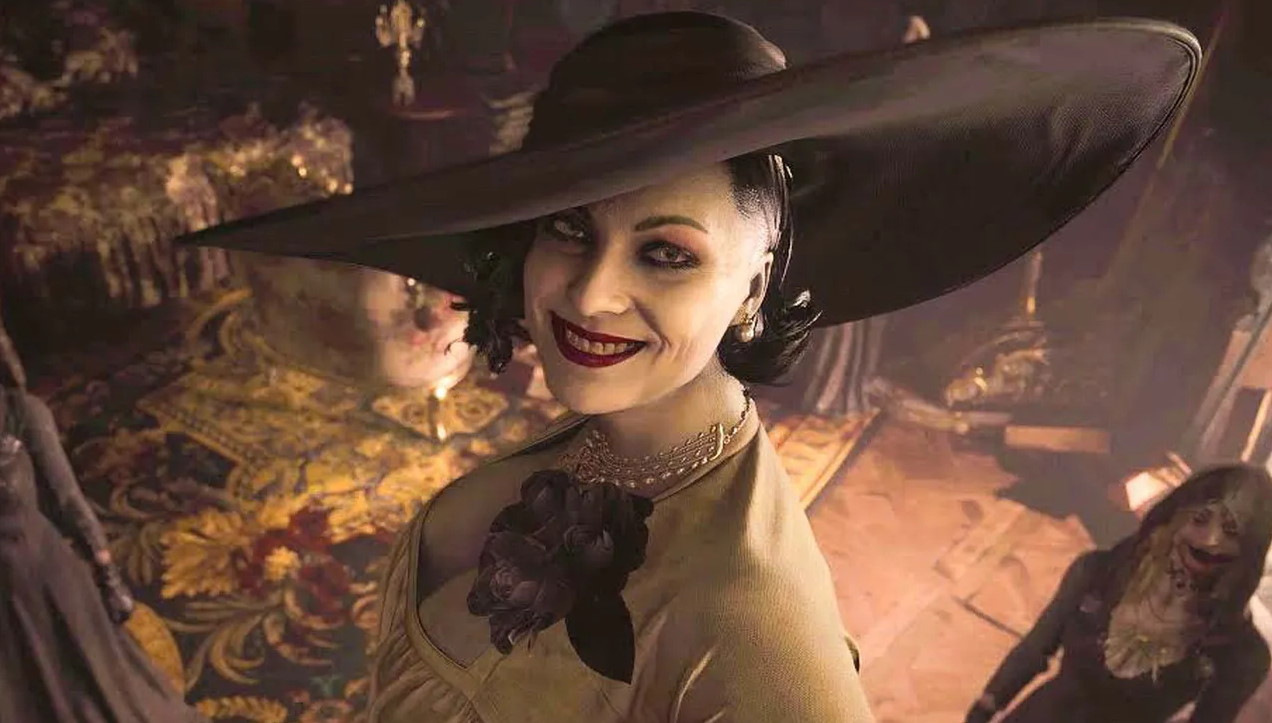This article first appeared in PC Gamer magazine issue 389 in October 2023, as part of our Reinstall series. Every month we load up a beloved classic—and find out whether it holds up to our modern gaming sensibilities.
A staggering eight years ago, Fallout 4 was released. Its developer, Bethesda, made the swap back to the rusty post-apocalypse after having launched what would become one of the most influential open-world RPGs of all time, Skyrim, just three years before. In many ways, Fallout 4 is a sequel to both Skyrim and Fallout 3. It refines the expansive structure of the fantasy setting by rooting it in the familiar, real-world locations of the ruined American setting. And it begins before the bombs are dropped, in an intro sequence that whiffs an attempt to ground your character in its fascinating world.
You’re already awake and staring at the bathroom mirror in the first ten minutes of Fallout 4. This comes immediately after a narrated autobiography of Nate, Fallout 4’s male protagonist and the husband of Nora, the female protagonist. You can sculpt their faces into whatever shape you’d like and then step out of the bathroom into a house so idyllic it would be invisible in Fallout 3’s parody of 1950s suburban life in its Tranquility Lane mission.
Time freezes as you preemptively train your scavenger brain by searching each room for objects to interact with. Cereal boxes, Nuka Cola, and your own infant son are prompts for your character to reflect on the mundanity of living comfortably and ignorantly in a country whose leaders were secretly preparing for nuclear catastrophe.
Quiet intro
(Image credit: Bethesda)
Fallout 4’s quiet intro plays everything rather straight for the fourth entry in a series about the hubris of America. It’s playful in a way videogame tutorials often are—go this way, touch that, follow me. You need to become a parent in the next 20 minutes and that means you’re going to have to look at a baby a few times. Look at Shaun, all bundled up in his crib. Tap the mobile to stop him from crying and don’t perceive the irony of being trapped in a house full of playthings to keep you, the player, from crying. If you finished Fallout 4, you know why all of this is here and why this fails as a reasonable origin story for the super soldier you eventually become.
To Nora, it’s a normal sunny day in a Xeroxed house in a Xeroxed neighbourhood. She’s a lawyer and he’s a war veteran, and they both are conveniently situated in the safest bubble of America. Fallout 4 celebrates the nuclear family so that when it’s obliterated, it can argue that something was lost. But Fallout 4 goes so far as to include a lesbian couple as your neighbours and a handful of Black families, too, the sort of people who might’ve already lost a lot more than you.
When I passed by them as I replayed Fallout 4’s intro, they were frightened more than I was. My family had just been told that, because of Nate’s service to the country, we would have a place in the local Vault-Tec Vault should the war against China spread into our borders. Other than the panic of armed police hurriedly ushering us toward the vault, my family fit perfectly into the part of America worth preserving. The first few minutes of Fallout 4 hit much differently when you live in a global pandemic where governmental hospitality and policies prioritise a certain type of citizen over others.
Instead, Fallout 4’s imagination is surprisingly small for a starting experience set in the nostalgic era the series has lambasted for decades. It’s entirely possible that Bethesda meant for you to read all of this as a caricature of 1950s American life. It is that, but I’m not sure it makes a clear argument that you shouldn’t enjoy it and mourn it when it’s suddenly buried in atomic clouds. The only bit of scepticism comes from a dialogue choice in a conversation with the Vault-Tec employee who warns you of a possible apocalypse. You can make a joke about the likelihood of the end of the world two minutes before it happens.
Let me out
(Image credit: Bethesda)
After the bombs go off as you take the elevator deep underground into the vault, the real Fallout begins. The familiar titanium walls and uniformed Vault-Tec employees welcome you to a future you know won’t last. Other fortunate families panic as the guards push you down the line toward the cryo tanks where you’ll spend the next 200-ish years.
Your entry into Vault 111 emulates the unease of going through airport security. You stumble along trying to avoid trouble while too scared to ask why any of this is necessary. The specificity of this anxiety in a scenario where your character’s life affords zero benefits, is the sharpest part of Fallout 4’s opening hour. It’s frightening to be treated like a number and worse when you’re given the blue and yellow jumpsuit to fully become one.
Fallout 4’s ambitions crumble a little early.
Plot happens and you’re left husband- and baby-less in an empty vault. Mostly empty—the radroaches took over when the people revolted. Discarded skeletons lay on the metal floors as you run past and the place you were told would be safe is now an obstacle on your path to avenge your spouse—an instantaneous decision only a videogame protagonist could make. You find a pistol and use it to dispatch the roaches with one of Fallout 4’s most controversial changes from the previous game: a higher level of baseline firearm proficiency no matter what kind of character you choose to be. For a lawyer, Nora sure can aim, and it jerks you right out of what could have been a frantic, desperate escape (something that makes more sense if you choose to play as Nate). The horror of reading logs about the people who were trapped here for months wondering if the government would ever let them out, or if there is anything left to be let out to, fades when you’ve got a gun in your hands.
There’s no avoiding that this is an FPS where the shooting should be satisfying, but for all the effort to lock you in a maze with cheese at the end, Fallout 4’s ambitions crumble a little early. So much work goes into establishing your character as wilfully ignorant of the war outside their door and instead of reacting to the death of their loved one with shocked horror, they transform into Rambo.
This is where Bethesda seems to struggle the most. Its worlds are stuffed with stunning landmarks, eccentric characters and satisfying carnage, but the emotional journey of its characters, especially that of the protagonist’s, are on 2x speed. I’d be willing to cut it some slack given the inherent absurdity of the setting if the writing or systems slowed down a bit and gave you time to respond to what is a pretty fascinating premise.
(Image credit: Bethesda)
I like a fair amount of the rest of Fallout 4, and am aware that many Bethesda game intros fail to capture the actual draw of the experience. But millions of people just played Elden Ring, an RPG that also opens in a sealed-off area that acts more as a thesis underlining the mood of the world rather than offering a bunch of convoluted reasons why you should care about it.
With Starfield now out, and suffering from another flat, compromised intro, I’d love to see Bethesda transfer some of the mastery it has with building massive, detailed worlds into an intro for its next game that confidently anchors me to its function. An intro that pulls in everything it’s learned from its past games and modern culture. However, even if Fallout 4’s intro falls flat, the ambition behind it is more than enough to create an opener that I won’t forget.











